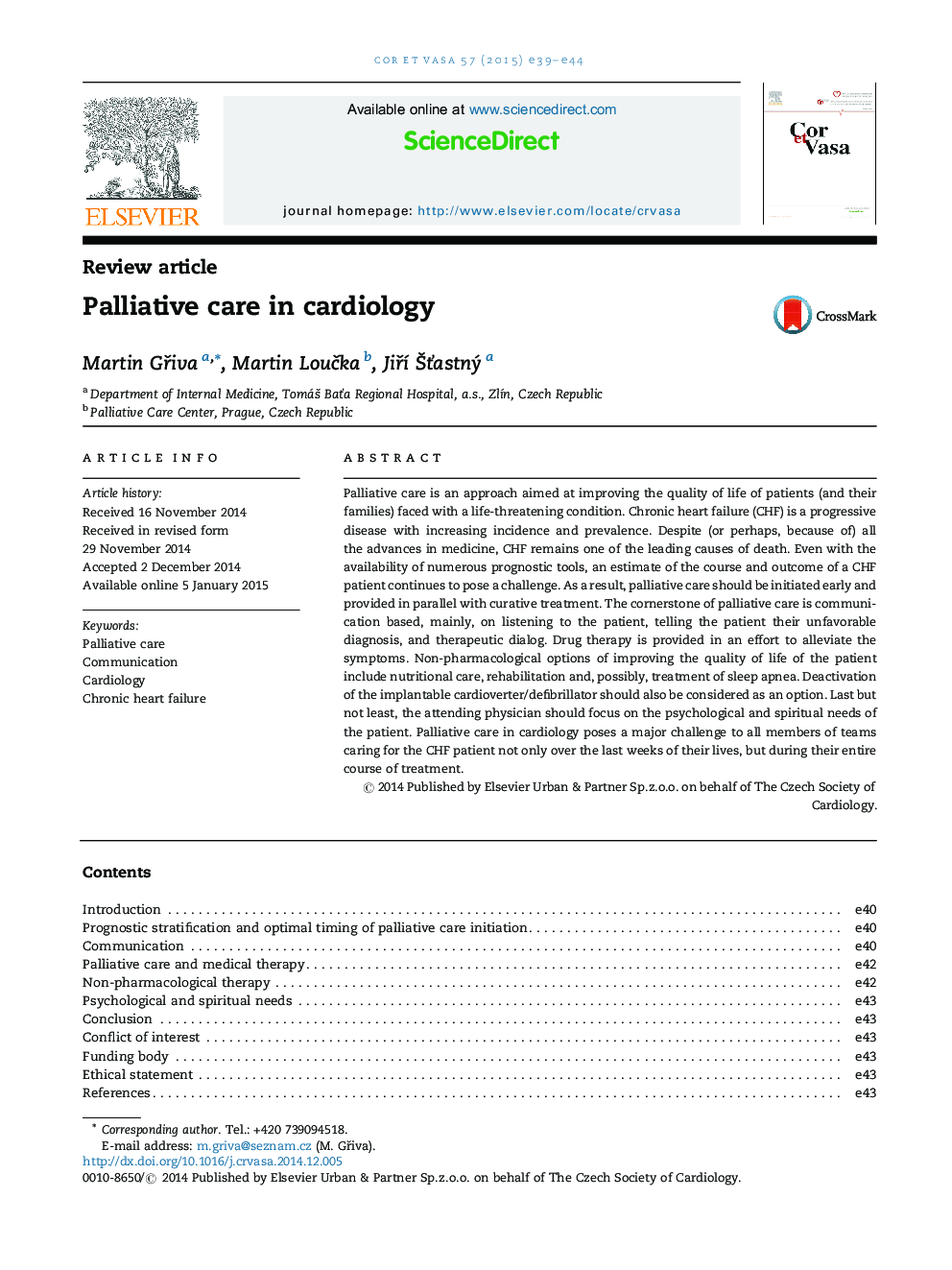| Article ID | Journal | Published Year | Pages | File Type |
|---|---|---|---|---|
| 2733027 | Cor et Vasa | 2015 | 6 Pages |
Palliative care is an approach aimed at improving the quality of life of patients (and their families) faced with a life-threatening condition. Chronic heart failure (CHF) is a progressive disease with increasing incidence and prevalence. Despite (or perhaps, because of) all the advances in medicine, CHF remains one of the leading causes of death. Even with the availability of numerous prognostic tools, an estimate of the course and outcome of a CHF patient continues to pose a challenge. As a result, palliative care should be initiated early and provided in parallel with curative treatment. The cornerstone of palliative care is communication based, mainly, on listening to the patient, telling the patient their unfavorable diagnosis, and therapeutic dialog. Drug therapy is provided in an effort to alleviate the symptoms. Non-pharmacological options of improving the quality of life of the patient include nutritional care, rehabilitation and, possibly, treatment of sleep apnea. Deactivation of the implantable cardioverter/defibrillator should also be considered as an option. Last but not least, the attending physician should focus on the psychological and spiritual needs of the patient. Palliative care in cardiology poses a major challenge to all members of teams caring for the CHF patient not only over the last weeks of their lives, but during their entire course of treatment.
